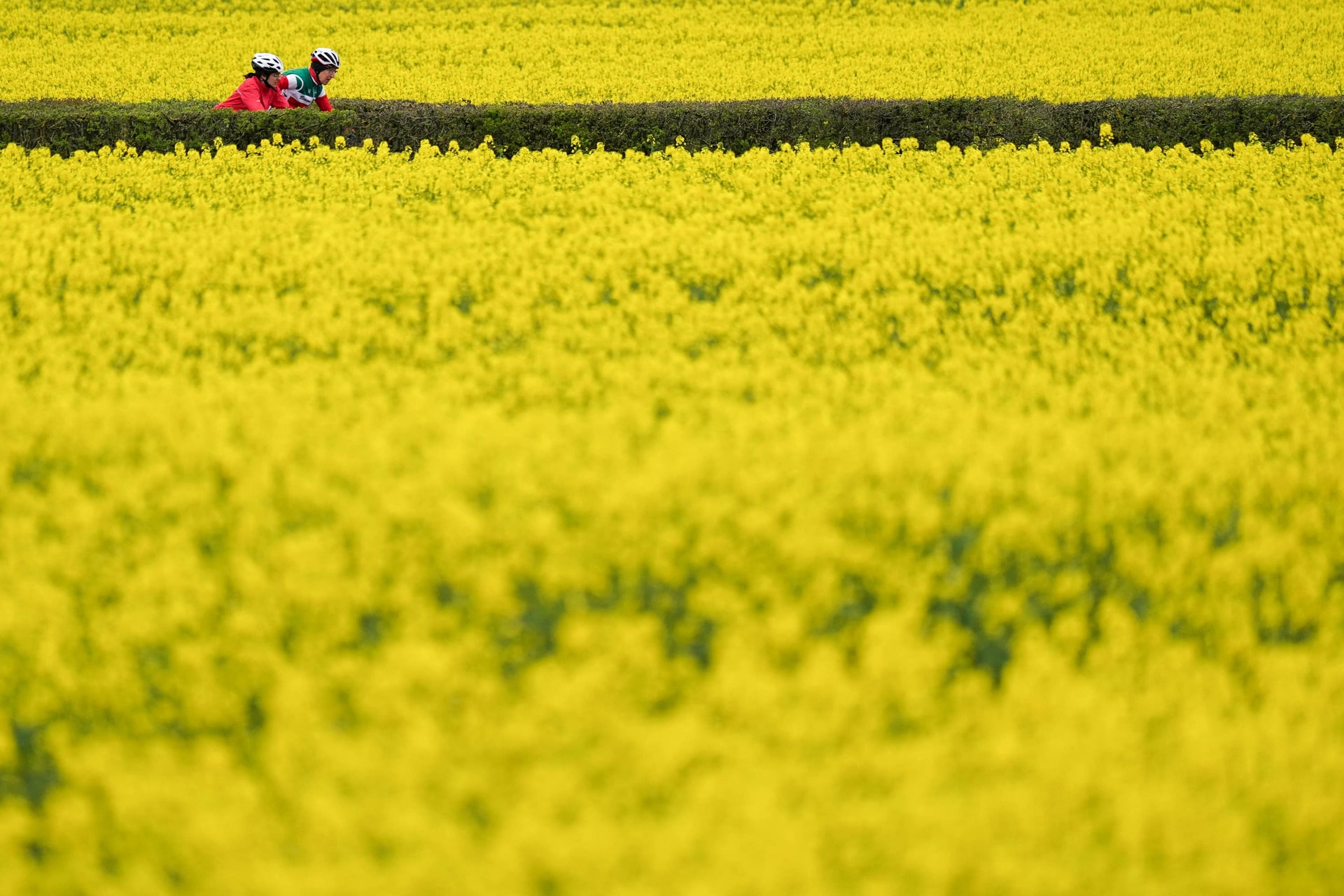Researchers have developed a new method to extract high-quality protein from rapeseed waste, saying the discovery could help solve the world’s growing demand for protein.
Using environmentally friendly solvents, the Heriot-Watt University scientists have found a way to extract protein from the crop.
It means that rapeseed press cake, a by-product from the production of rapeseed oil which is used for animal feed, could become more useful and potentially provide protein for human consumption.
Global protein demand is expected to double by 2050 due to urbanisation and rising incomes in emerging economies.
Professor Stephen Euston, of Heriot-Watt University in Edinburgh, said: “Livestock farming produces high levels of greenhouse gases, creating a serious environmental challenge as demand for animal protein grows.
“We need alternative sources of protein that don’t cost the earth.”
Prof Euston and his colleagues said rapeseed press cake could be improved.
He said: “Rapeseed press cake has been an underused resource, and upgrading it for human consumption would make a lot of sense – there’s a lot available in Scotland, as farmers use rapeseed as a break crop, and the market for the oil has been growing.”
Prof Euston added: “It contains 28 to 45% protein, depending on the processing method, and most of this nutritious material goes unused for human consumption.”
The team investigated whether natural deep eutectic solvents could be used to extract protein from rapeseed press cake.
 PA Media
PA MediaUsing computer simulations, they found certain formulations were able to increase the protein yield significantly.
However there are still hurdles ahead of the techniques becoming commercialised.
Prof Euston said: “More research is required on optimising both the choice of components and concentration of species to maximise yield and purity of protein extracts.
“But this is a step towards a more sustainable food system, where agricultural waste could be upgraded for human consumption.”
The research was reported in the journal Food Hydrocolloids.
Follow STV News on WhatsApp
Scan the QR code on your mobile device for all the latest news from around the country


 PA Media
PA Media























